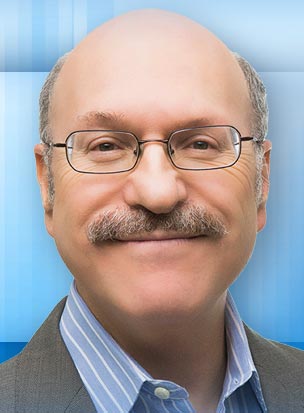Sign up for:
- Information on TM research and webinars

Try A Surge Protector against Stress An Interview with Psychiatrist and Best-selling Author Norman Rosenthal, M.D.
Norman Rosenthal, M.D., is a clinical professor of psychiatry at Georgetown Medical School and led the research team that first described Seasonal Affective Disorder (SAD) and its treatment. He is a former Senior Researcher at the National Institute of Mental Health and author of the New York Times best-seller Transcendence: Healing and Transformation through Transcendental Meditation. Dr. Rosenthal explains how the experience of transcendence during the practice of TM can help eliminate the buildup of stress and improve health.
Q: Most people today are feeling stressed. How can the TM technique help?
Dr. Norman Rosenthal: When you learn TM and meditate for 20 minutes twice a day, everything begins to slow down, at first, just while we’re meditating. After a while, it spills over into daily life. And as we slow down, we become more effective and more efficient. All those little tiny stresses don’t need to be responded to or reacted to. That enables us to respond only when we need to, and to the right degree in the right way. We can choose what we’re going to respond to because we’re not on an automatic reflexive trigger response for every little stress. What I often say is that TM gives you a surge protector to protect against the surges of stress that occur on a daily basis.
Q: Can you give us an example of this surge protector effect?
NR: Two studies come to mind. The first was by David Orme-Johnson, PhD. He exposed both TM meditators and non-meditators to loud noises and then measured their galvanic skin response (GSR), which is a part of the fight-or-flight response in the sympathetic nervous system.
In the case of meditators, the GSR went up quickly in response to the stress, and then came down quickly and stayed down. That is an ideal response. When the stress comes, you want to be able to have your stress response system respond to it, take care of it, and then settle back down to baseline.
People in the control group that did not practice TM had a slower settling down of the stress response. Even after settling down, their GSR jumped up a couple of times like false alarm responses to the original stress of the loud noise.
The second study, by Daniel Goleman and Gary Schwartz at Harvard University, reinforced what Orme-Johnson found. The GSR and heart rates of the meditators settled down more quickly after a disturbing video than the heart rates of the control group that was not practicing TM.
When you practice TM you don’t just feel like you have a surge protector—these experimental studies indicate that you actually do.
Q: What are the health benefits of having a surge protector for our body and mind?
NR: Research has established that TM has a positive impact on blood pressure. Normally when stresses are occurring, your blood pressure goes up in response to stress and then comes down again. But if you are being stressed repeatedly and frequently, your blood pressure can go up and stay up.
There have been several controlled studies indicating that there is a highly statistically significant decrease in blood pressure for those who learn the TM technique. It’s no surprise, therefore, that when you look at hard endpoints, such as heart attacks, stroke, or death, TM brings significant positive results as well.
One study showed a 23 percent reduction in all mortality causes, and a 30 percent reduction in cardiovascular mortality for meditators who had previously been in controlled studies of blood pressure. Looking at death records approximately ten years later, the TM group had much better longevity than the control group.
Robert Schneider and colleagues repeated that research with a study of high-risk individuals. He found a 47 percent reduction in death, heart attack, and stroke for those who practiced TM in conjunction with all the standard treatments. No other stress management technique has anywhere close to this amount of hard data in support of its claims to reduce stress.
Q: Can you share what you’re working on now?
NR: I’m writing a book about TM as a tool for the development of human potential. Even though TM is a highly effective stress management tool, its benefits go far beyond that. When you start to meditate, you become calmer, and people begin to react differently to you. They begin to feel more relaxed in your presence. Not only do you become less stressed, you become like a little oasis of positivity.
All kinds of things begin to happen that are easier and more conducive to a smooth life. Whereas previously you seemed to encounter resistance, with obstacles on all sides, now things flow more easily. This means that TM is actually a tool for the development of higher states of consciousness.
Dr. Rosenthal’s new book, Super Mind: How to Boost Performance and Live a Richer and Happier Life Through Transcendental Meditation, is due out May 17.

